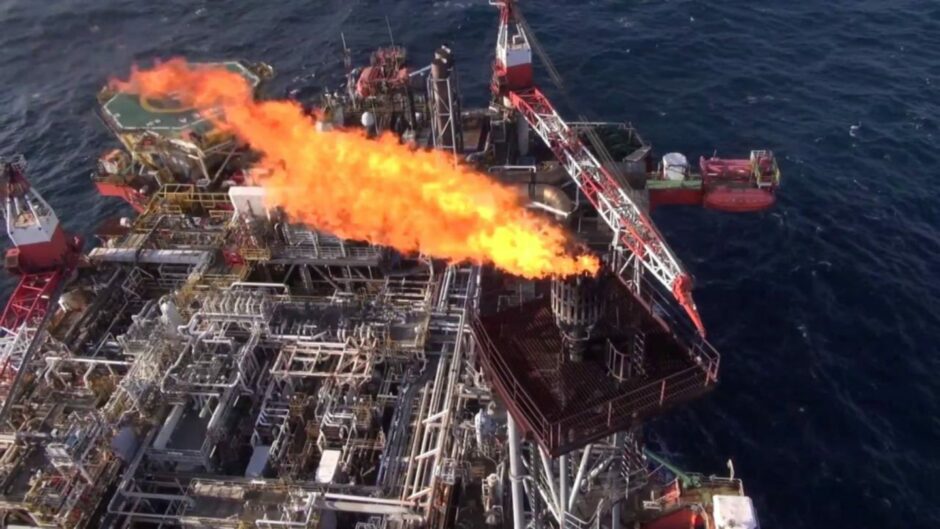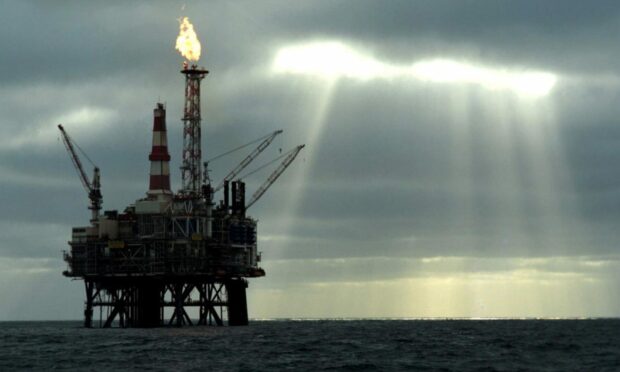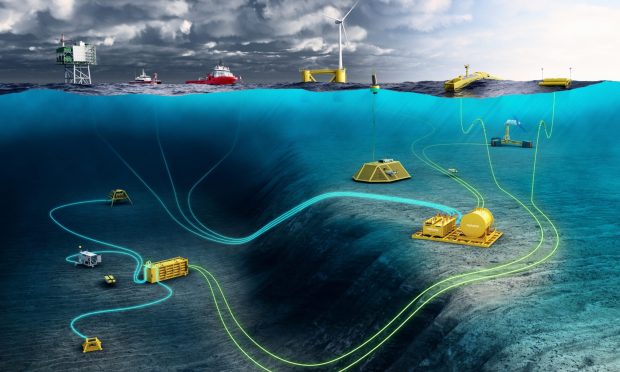The North Sea’s oil and gas regulator has fined a trio of operators as it vows to “crack down” on behaviour that undermines energy security and transition.
EnQuest, Spirit Energy and Equinor were handed the penalties for issues linked to historic emissions violations and over-production.
London-listed EnQuest was slapped with what is believed to be the largest fine issued by the North Sea Transition Authority (NSTA) to date.
It must stump up £150,000 for flaring an excess 262 tonnes of gas on its Magnus field.
The activity, which occurred between November 30 and December 1 2021, happened despite EnQuest knowing it did not have the necessary consent in place, NSTA said.
Spirit was fined £50,000 for exceeding its maximum allowed production volumes from two fields over a period of three years – the Rhyl field between 2018-20 and Ceres between 2019-20.
NSTA said producing too much oil and gas could reduce overall long-term production from a reservoir, potentially undercutting the UK’s strategic security of supply.
“It is vital that when an operator wants to raise production it applies for a new consent so that its new plan can be assessed,” the regulator added.
‘Administrative’ issue
Norwegian company Equinor was fined £65,000 for flaring at least 348 tonnes of CO2 above the amount permitted on its Barnacle Field between June and November 2020.
The regulator said Equinor’s technical breach of rules was an “administrative” issue.
NSTA said all three operators had “cooperated fully” with its investigations, conducted their own internal reviews and taken steps to avoid any repeat of the rule breaches.
EnQuest confirmed it had conducted its own review to determine the cause of its failure and prevent any future failure to comply with the rules.

Spirit said it was “committed to operating in a socially and environmentally responsible way” and took any non-compliance seriously.
It added: “After identifying the circumstances which gave rise to this sanction, Spirit reported them to the NSTA and fully co-operated with their investigation. Spirit also conducted its own separate internal review.
“Both investigations have now concluded, with Spirit implementing all resulting recommendations with a view to ensuring its future compliance with production consents.”
NSTA said its guidance aimed to eliminate unnecessary or wasteful flaring and venting of gas.
Operators must follow a clear process to apply for consent to flare or vent gas, it added.
But it also said recent progress in the UK North Sea was “encouraging”.
Regulation director Jane de Lozey added: “The NSTA is committed to supporting the UK’s energy security and lowering greenhouse gas emissions, including through the use of our robust consenting procedures, which drive down flaring and venting.”
The regulator recently revealed greenhouse gas emissions fell to 14.3 million tonnes of CO2 equivalent in 2021 – an overall reduction of 21.5% since 2018.
Showing teeth
NSTA has previously made clear it will enforce its legal powers against wayward companies.
Several probes have been launched in recent months to investigate whether firms are in compliance with their licence obligations.
Pending cases involve activities including exploration drilling and seismic surveys.

Earlier this year NSTA closed an investigation into Shell, finding the firm had breached five field production consents.
Having raised concerns with Shell in November 2020, the regulator slapped Shell with a £50,000 fine and sanction notice.
Last year BP became the first operating company to be fined by the regulator.
The energy giant was found to have “unintentionally” failed to report on the progress and results of two extended well tests as part of its consent for the Vorlich oilfield.













Conversation